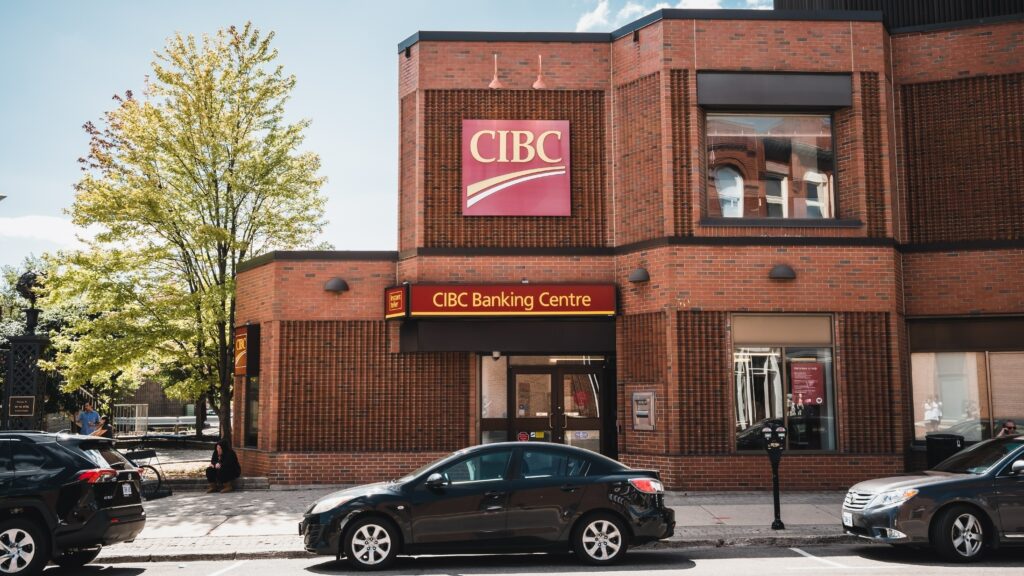
Thinking about moving to a new house but unsure what to do with your mortgage loan? Well, you’ll be glad to know that it is indeed possible to transfer your mortgage loan to another property. Exciting, right? So if you’re wondering how this process works and what steps you need to take, you’ve come to the right place. In this article, we’ll guide you through everything you need to know about transferring your mortgage loan, empowering you to make the best decision for your new property venture. Get ready to embark on a smooth transition from one home to another!

Table of Contents
What is a mortgage loan?
Definition of a mortgage loan
A mortgage loan is a type of loan that is specifically designed for the purpose of purchasing a property. It is a long-term loan that is typically paid off over a period of 15 to 30 years. The property itself serves as collateral for the loan, which means that if the borrower defaults on the loan, the lender has the right to take possession of the property.
How does a mortgage loan work?
When you take out a mortgage loan, the lender provides you with the funds necessary to purchase a property. In return, you agree to repay the loan amount, plus interest, over a set period of time. The interest rate on a mortgage loan can be either fixed or adjustable, depending on the terms of the loan. Each month, you make a payment towards the principal balance of the loan as well as the interest accrued on the outstanding balance. As you make these payments, your equity in the property increases.
Types of mortgage loans
There are several types of mortgage loans available, each with its own set of terms and conditions. The most common types of mortgage loans include:
- Conventional mortgages: These are loans that are not insured or guaranteed by the government. They typically require a down payment of at least 20% of the purchase price and have stricter qualification criteria.
- FHA loans: These loans are insured by the Federal Housing Administration and are designed to help first-time homebuyers. They often require a lower down payment and have more flexible qualification criteria.
- VA loans: Available to military veterans and their families, VA loans are guaranteed by the Department of Veterans Affairs. They often provide favorable terms and require little to no down payment.
- USDA loans: These loans are backed by the United States Department of Agriculture and are designed to help individuals purchase homes in rural areas. They often provide favorable terms and may require no down payment.
Understanding mortgage transfers
What is a mortgage transfer?
A mortgage transfer, also known as a ported mortgage, is the process of transferring an existing mortgage loan from one property to another. This allows homeowners to move to a new property without having to pay off their current mortgage in full and take out a new loan. Instead, they can transfer the remaining balance of their loan to the new property.
Why would someone consider transferring their mortgage loan?
There are several reasons why someone might consider transferring their mortgage loan to another property. One common reason is when homeowners are looking to sell their current property and purchase a new one. By transferring their mortgage, they can avoid paying prepayment penalties and retain their current loan terms. Additionally, transferring a mortgage may also allow homeowners to take advantage of lower interest rates and potentially save money on their monthly mortgage payments.
Factors to consider before transferring a mortgage loan
Current interest rates
Before transferring your mortgage loan, it’s important to consider the current interest rates. If interest rates have decreased since you took out your initial mortgage, transferring your loan may allow you to secure a lower interest rate and save money on your monthly mortgage payments. However, if interest rates have increased, transferring your mortgage may result in higher monthly payments.
Remaining loan term
The remaining loan term is an important factor to consider when deciding whether to transfer your mortgage loan. If you have made significant progress in paying down your current loan, transferring it to a new property could reset the loan term and extend the amount of time it takes to pay off the loan in full. On the other hand, if you still have many years left on your current loan, transferring it could allow you to take advantage of lower interest rates and potentially save money in the long run.
Amount of equity
The amount of equity you have in your current property is another important factor to consider. Equity is the difference between the value of your property and the amount you owe on your mortgage. If you have built up a significant amount of equity in your current property, transferring your mortgage to a new property may be easier, as you will have a larger down payment to put towards the new purchase.
New property value
The value of the new property you are looking to purchase is also a key consideration. Lenders typically require a new property appraisal to determine its value. If the new property is appraised at a lower value than your current property, you may need to come up with additional funds to meet the lender’s down payment requirements.
Creditworthiness
Your creditworthiness plays a crucial role in determining whether you will be approved for a mortgage transfer. Lenders will assess your credit score and financial history to determine your eligibility for a new loan. If your credit score has significantly decreased since you took out your initial mortgage, you may face challenges in transferring your mortgage.
Financial implications
Finally, it is important to consider the financial implications of transferring your mortgage loan. Transferring a mortgage may incur costs and fees, such as legal and administrative fees, property valuation fees, and potential prepayment penalties. It is essential to carefully calculate these costs and fees to determine if transferring your mortgage is financially advantageous for you.
Process of transferring a mortgage loan
Contacting your current lender
The first step in the process of transferring a mortgage loan is to contact your current lender and inquire about the possibility of transferring your mortgage to a new property. They will provide you with the necessary information and guide you through the process.
Obtaining a new mortgage approval
Next, you will need to obtain a new mortgage approval from a lender for the property you are looking to purchase. This involves submitting an application and providing the necessary financial documentation, such as proof of income and credit score.
Assessing the new property’s eligibility
Once you have obtained a new mortgage approval, the lender will assess the eligibility of the new property. This typically involves a property valuation to determine its market value and ensure that it meets the lender’s requirements.
Application and approval process
After the property has been assessed, you will need to complete the application and approval process for the new mortgage. This may involve providing additional documentation and working closely with the lender to ensure a smooth transition.
Transferring the mortgage loan
Once the new mortgage has been approved, the final step is to transfer the mortgage loan from your current property to the new property. This process typically involves coordination between your current lender, the new lender, and any necessary legal professionals.
Potential challenges of transferring a mortgage loan
Prepayment penalties
One potential challenge of transferring a mortgage loan is the existence of prepayment penalties. Some mortgage loans may include penalties for paying off the loan before the agreed-upon term. Before transferring your mortgage, it is important to carefully review your loan agreement and calculate any potential penalties to ensure that the transfer is financially beneficial.
Legal and administrative fees
Transferring a mortgage loan may also incur legal and administrative fees. These fees can vary depending on the lender and the complexity of the transfer process. It is important to carefully consider these fees when assessing the financial implications of transferring your mortgage.
Property valuation
The valuation of the new property may pose a challenge in the mortgage transfer process. If the new property is appraised at a lower value than your current property, you may need to come up with additional funds to meet the lender’s down payment requirements. Additionally, if the new property is not eligible for a mortgage transfer due to its condition or location, you may need to explore alternative options.
Difference in interest rates
Another potential challenge of transferring a mortgage is the difference in interest rates between your current mortgage and the new mortgage. If interest rates have increased since you took out your initial mortgage, transferring your mortgage may result in higher monthly payments. It is important to carefully calculate the potential increase in interest rates to ensure that the transfer is financially beneficial.
Alternatives to transferring a mortgage loan
Refinancing the mortgage loan
If transferring your mortgage loan is not financially advantageous, you may consider refinancing your current loan instead. Refinancing involves taking out a new loan to replace your existing mortgage loan. This allows you to take advantage of potentially lower interest rates and better loan terms. However, it is important to carefully consider the costs and fees associated with refinancing before making a decision.
Selling the current property and repaying the loan
Another alternative to transferring a mortgage loan is to sell your current property and use the proceeds to repay the loan. This option allows you to start fresh with a new mortgage loan on a new property. However, it is important to carefully consider the costs and fees associated with selling a property, such as real estate agent commissions and closing costs.

Benefits of transferring a mortgage loan
Interest rate savings
One of the main benefits of transferring a mortgage loan is the potential for interest rate savings. If interest rates have decreased since you took out your initial mortgage, transferring your loan to a new property with lower rates can result in significant savings over the life of the loan. This can lead to lower monthly mortgage payments and more money in your pocket.
Avoiding loan prepayment penalties
By transferring your mortgage loan instead of paying it off early, you can avoid prepayment penalties that may be included in your loan agreement. These penalties can be substantial and can offset any potential savings from refinancing or selling your property.
Retaining current loan terms
Transferring your mortgage loan allows you to retain your current loan terms, including the remaining loan term and any other favorable conditions. This can be especially beneficial if you have made significant progress in paying down your current loan or if you have a fixed interest rate that is lower than the current market rate.
Drawbacks of transferring a mortgage loan
Costs and fees associated with the transfer
One drawback of transferring a mortgage loan is the costs and fees associated with the transfer process. These can include legal and administrative fees, property valuation fees, and potential prepayment penalties. It is important to carefully calculate these costs and fees to determine if transferring your mortgage is financially advantageous for you.
Potential increase in interest rates
Another drawback of transferring a mortgage loan is the potential for an increase in interest rates. If interest rates have increased since you took out your initial mortgage, transferring your mortgage may result in higher monthly payments. It is important to carefully calculate the potential increase in interest rates to ensure that the transfer is financially beneficial.
Process can be time-consuming
Transferring a mortgage loan can be a time-consuming process that requires coordination between multiple parties, including your current lender, the new lender, and any necessary legal professionals. The process can involve paperwork, documentation, and communication between various parties, which can be time-consuming and potentially stressful.

Required documents for a mortgage transfer
Original loan agreement
When transferring a mortgage loan, your current lender will typically require a copy of the original loan agreement. This document outlines the terms and conditions of your current mortgage and serves as a reference for the transfer process.
Proof of income
To assess your eligibility for a new mortgage, the lender will typically require proof of income. This can include pay stubs, tax returns, and bank statements to verify your income and ensure that you can afford the new mortgage payments.
Title deed for new property
In order to transfer the mortgage loan to a new property, the lender will require a copy of the title deed for the new property. This document proves your ownership of the property and allows for the transfer of the mortgage.
Property valuation report
As part of the mortgage transfer process, the lender will typically require a property valuation report for the new property. This report determines the market value of the property and ensures that it meets the lender’s requirements.
Credit score and financial information
Finally, the lender will require information about your credit score and financial history. This includes providing your credit score, credit report, and any other relevant financial information to assess your creditworthiness and determine your eligibility for a new mortgage.
Conclusion
Transferring a mortgage loan to another property can be a viable option for homeowners looking to move and avoid prepayment penalties. However, it is essential to carefully consider all the factors involved, such as current interest rates, remaining loan term, equity, property value, creditworthiness, and financial implications. Additionally, the mortgage transfer process may come with challenges such as prepayment penalties, fees, property valuation, and potential differences in interest rates. Alternatives like refinancing or selling the current property should also be considered. While transferring a mortgage loan can offer benefits such as interest rate savings and retention of favorable loan terms, it is important to weigh these against the drawbacks, such as costs and potential increase in interest rates. By understanding the process and gathering the required documents, homeowners can make an informed decision on whether to transfer their mortgage loan to a new property.







